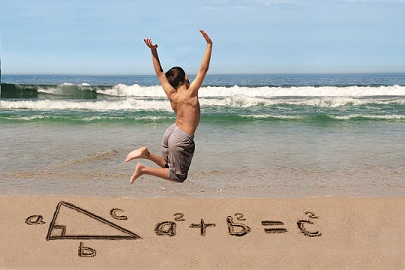Summer is here, and for struggling learners, the countdown to when school starts again has begun. For many young students, calculating and understanding numbers doesn’t come easy, and math in general can be one of the main reasons that they dislike school. In fact, on average, students lose approximately 2.6 months in grade-level equivalency in mathematical computation skills over the Summer.
So, while parents do not want their reluctant mathematicians completing addition and multiplication workbooks all summer long, it is imperative that they practice math skills in some degree, so that their attitude and effort at school will improve.
One of the best ways to encourage Summer learning is to engage kids with teaching tools that keep them engaged and entertained, teaching math in a way that they will want to learn. Fortunately, there are fantastic websites, games, and apps that can dramatically improve your child’s math skills. Best of all, you won’t have to fight with them to use them. The best approach is to find the right combination of digital tools for your child and then practice the application of math skills through real world activities that capture their interest . Following our math prescriptions and combining them with our family activities and recommended physical exercise will improve your child’s math skills and lead to a more motivated learner.
For children dealing with a learning disability in math, or who simply struggle to remember basic math facts, it is particularly important to help them develop core computational skills and be able to apply them to areas of summer interests.
For example, children who like to go to the beach or swimming might be in charge of monitoring the weather forecasts, paying close attention to temperatures, wind speeds, tide times and the likelihood of precipitation.
Kids particularly interested in sports have many opportunities to practice math during the Summer, with sports such as tennis, baseball, and golf, which are full of numbers via scoring and statistics.
Family projects are a great way to encourage learning with math, too. A building project involves measuring and angles. Selling unused items via eBay or a garage sale gets kids playing with cost and profit concepts, while having them help plan what new school clothes to buy come September has them utilizing a budget.
Summer math skills can also be practiced while you are getting exercise. Keep a log of the number of miles that you walk, charting progress in weightlifting or simply keeping score in a game of basketball or ping-pong.
We encourage you to go to our Summer Math Guide for a prescription of broad-based math programs accompanied by a variety of fun apps and games that are sure to encourage your child’s math interests and practice. Be certain to combine our summer math activities and physical exercise to get the most out of your child’s learning opportunities.




